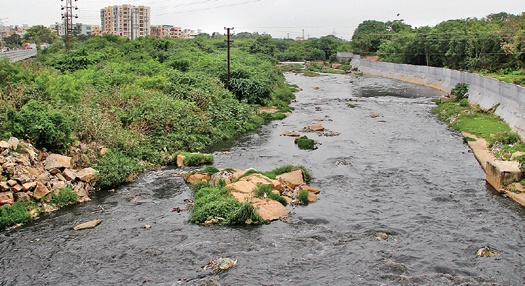Musi river

Reclaiming the Musi:
A Call for Justice, Ecology, and Inclusivity
The Musi River is not just a lifeline for Telangana but a symbol of Hyderabad's rich heritage and the livelihoods of communities across its banks. However, the Musi Riverfront Development Project hurriedly floated by the Government of Telangana has raised grave concerns, as it advances without consultation with those most affected—residents of the riverbed, downstream farmers, and vulnerable urban communities. The absence of transparency and stakeholder engagement reflects a failure of democratic governance and ecological justice.
Ecological Crisis and the Disruption of Livelihoods
The Musi, plagued by untreated sewage and industrial effluents, cries for genuine rejuvenation—not commodification. Nearly 60% of the river's inflow consists of untreated sewage. Without addressing this, the project risks perpetuating environmental degradation. Additionally, altering the river’s natural flow jeopardizes downstream villages, affecting over 60 communities that depend on it for agriculture and daily sustenance.
Forced Displacement and Inadequate Rehabilitation
Families residing in the riverbed are being forcibly relocated to substandard 2BHK units without adequate compensation, transparency, or consultation. Many of these units lack basic amenities such as water access, functional infrastructure, and secure ownership rights. Tenants, waste-pickers, and other marginalized groups have been excluded from rehabilitation altogether, exacerbating their vulnerability. Arbitrary eviction markings, such as RB-X designations, have displaced families living far from the riverbed without just cause.
Questionable Priorities and Urban Commons
The government has focused on commercial ventures, such as theme parks and tourism hubs, under the guise of river rejuvenation. These priorities reflect a commodification of urban commons, sidelining the river’s ecological health and the rights of its people. While ₹4,000 crore is being allocated for Sewage Treatment Plants (STPs), a staggering gap remains, leaving 26% of Hyderabad without a sewage network. This approach highlights the government’s misplaced priorities, which favor only a section of the population such as urban elites at the expense of the river's health and its dependents.
Fridays for Future India demands that the Musi River’s future must be anchored in democratic, ecological, and social justice principles:
- Genuine Consultation: Ensure free, prior, and informed consent of all affected communities.
- Ecological Restoration: Prioritize pollution control and the river’s free flow over commercialization.
- Inclusive Rehabilitation: Implement transparent policies for dignified housing and livelihood restoration for all displaced residents.
- Sustainable Development: Invest in decentralized waste management and comprehensive water governance.
The Musi River is a shared heritage, and its rejuvenation must reflect the needs of all its stakeholders—not just a privileged few. We stand united to demand a people-centered, ecologically just approach to reclaiming the Musi.